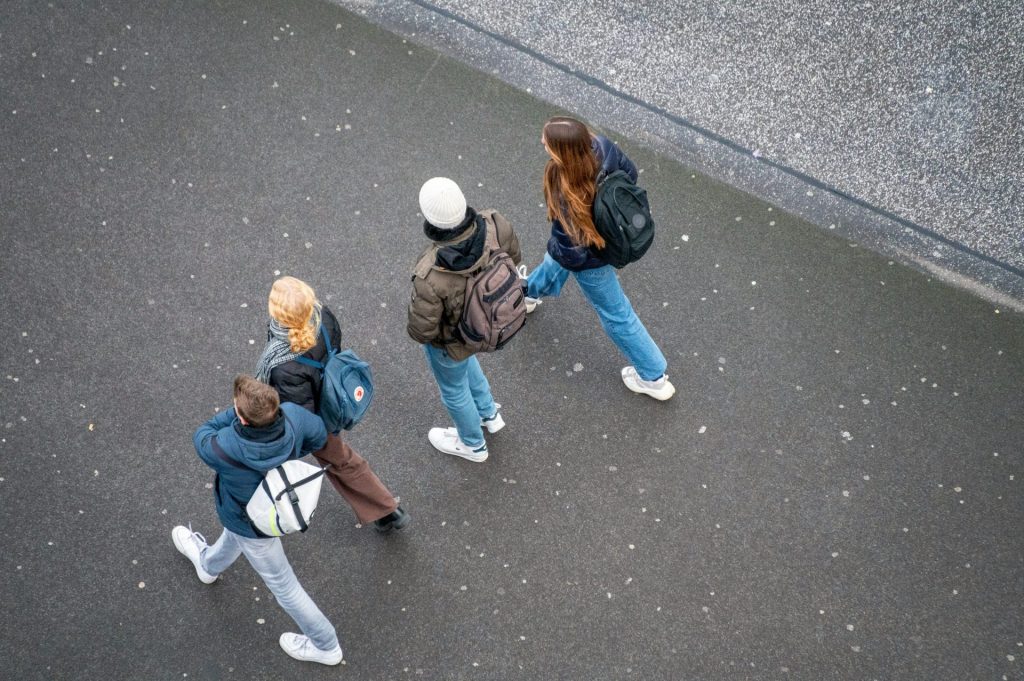Obtaining a Special Immigrant Juvenile Visa is a crucial step for many immigrant youths seeking protection and stability in the United States after being neglected by one or both parents. In addition, this immigration status may grant these young people the possibility of eventually applying for permanent residency in the United States.
In this Jaskot Law article, we will explore what the SIJS visa is, the benefits, and what the steps are after the youth visa is approved. Do not hesitate to consult our team of expert immigration lawyers with any questions or concerns you may have. We are committed to provide you with personalized attention for the resolution of your particular case.
What is Special Immigrant Juvenile Status, or SIJS?
Special Immigrant Juvenile Status, also known as SIJS, is a legal protection available in the United States for children under the age of 21 who have been abused, abandoned or neglected by one or both parents. Applying for this status gives young applicants a pathway to permanent residency in the country.
In order to obtain SIJS, the child must meet certain requirements and be deemed eligible for protection, as well as filing a Form I-360 with the U.S. Citizenship and Immigration Services (USCIS) and additional relevant documents.

Who can apply for SIJS?
A person will be considered eligible to apply for the SIJS visa if:
- Is under 21 years of age at the time of filing the application for Special Immigrant Juvenile Status.
- Is currently living in the United States at the time of filing the SIJ petition and at the time USCIS makes a decision on the petition.
- Is unmarried at the time of filing and at the time USCIS makes a decision on the petition.
- Have a court order determining that a) is a dependent of the court, or is in the custody of a state agency, or a person designated by the court; or b) who cannot be reunited with their parents due to abuse, neglect, abandonment, maltreatment, or similar grounds under state law at the time the application is filed and at the time USCIS makes a decision on the petition.
- Eligible for USCIS consent after obtaining a juvenile court order for assistance with abuse, abandonment, neglect or similar case under state law and not with the primary intent of obtaining an immigration benefit.
- If they have a written consent from the Department of Health and Human Services (HHS) and/or the Office of Refugee Resettlement (ORR) to the court’s jurisdiction if:
- If they are currently in the custody of HHS,
- The juvenile court order also changes your custody status or placement.
SIJS Visa approved, what’s next after that?
Once the Special Immigrant Juvenile Status (SIJS) visa has been approved, the young beneficiary will be able to access certain benefits in the United States that we will detail below. In addition, they will be able to initiate the Adjustment of Status process to apply for permanent residency.
In order to comply with all the necessary requirements, it is key to ensure that all supporting documents, such as the relevant forms, are completed correctly and with accurate information. Eventually, the beneficiary may be able to obtain a Green Card, which grants rights and responsibilities similar to those of a U.S. citizen.
Benefits of the approved SIJS visa
Some of the benefits that a young SIJS visa holder include the ones listed below:
- The possibility to apply for permanent residency in the United States.
- The possibility to obtain an Employment Authorization in order to be able to work legally in the United States and have a way to support themselves and be financially independent.
- Receive a legal status that allows you to feel safe in the United States without fear of deportation.
- Some SIJS beneficiaries may be eligible for certain benefits such as medical care and assistance programs.
- Opportunity to get an education in the United States and improve their language skills.
Adjustment of Status after SIJS is approved
A beneficiary who has been granted an SIJS visa may apply for permanent residence in the United States through a process called Adjustment of Status. Such Adjustment of Status is requested through the Form I-485 Application to Register Permanent Residence or Adjust Status with the United States Citizenship and Immigration Services (USCIS).
If visas are available, a young applicant may file Form I-360 and Form I-485 at the same time, as SIJS immigrant visas fall into the fourth preference category (EB-4). If, however, no visas are available, the applicant must wait to file Form I-485.
For more information on Visa Availability and Priority Dates please refer to the information contained in the official website of the U.S. Citizenship and Immigration Services (USCIS).

Required Documentation
To file Form I-485, it is also necessary to submit all additional evidence and documentation required by the U.S. government. Some of these documents are listed below, however, please note that you should always review the specifications included in the Form I-485 Filing Instructions before submitting your application.
- Two passport photographs.
- Copy of a valid identity document containing a photograph.
- Copy of birth certificate.
- Documentation of your immigrant status, including a pending or approved Form I-360.
- Records of criminal charge sentences, arrests or convictions.
- Form I-601 Waiver of Grounds for Inadmissibility (if applicable).
Where to apply
Where to file your Form I-485, after the SISJ is approved, will be subject to the specific preference category to which you belong. For this, we recommend that you consult the Directions for Direct Filing of Form I-485, Application to Register Permanent Residence or Adjust Status on the official website of the U.S. Citizenship and Immigration Services.
Deferred action
Juvenile applicants who are awaiting visa availability in order to apply for Adjustment of Status will be protected by Deferred Action for Juvenile Status. Through this immigration relief, young people waiting for visa availability will be protected from deportation and will be able to apply for Employment Authorization.
However, it is essential to remember that a Deferred Action does not grant permanent immigration status in the United States and is valid for a limited period of time.

Decisions on the submission of forms
When it comes to waiting for USCIS decisions on filed forms and applications, we must always keep in mind that these deadlines can sometimes be affected by external factors.
In general, we can say that USCIS takes 180 days, from the date of filing, to issue a decision on SIJS applications filed through Form I-360. However, this deadline does not contemplate the resolution for the application for permanent residence made through Form I-485.
In both cases, if the applications were approved, the beneficiary will receive a notice issued by the U.S. Citizenship and Immigration Services, informing him/her of the successful resolution of his/her case. If, however, any of your applications were disapproved, USCIS will send you a notice explaining the reason for the denial and the steps to take, if applicable, to request an appeal or motion for reconsideration.
Consult about your case
An applicant may also check the status of his or her case online or by calling 800-375-5283. Please note that updates on applications are usually available two weeks after submitting the application.
For more information on How to check the status of your case online, go to the official website of the U.S. Citizenship and Immigration Services and follow the steps detailed in that section.
How can an immigration attorney help after SIJS is approved?
Once a petition for Special Immigrant Juvenile Status (SIJS) has been approved, the role of an immigration attorney remains crucial to ensure a successful transition to permanent residency for the young applicant. Having the assistance of an attorney can make a difference in the resolution of the particular case, while ensuring that all legal requirements set forth by the U.S. government are met.
At Jaskot Law, we believe that having the support of a professional attorney can make a difference in the realization of your immigration dreams. For this reason, our team of lawyers offers a personalized service for the review and resolution of each of our clients’ cases. Contact our team today.
Frequently Asked Questions
What steps should I take after I get my SIJS visa approval?
After your SIJS visa is approved, the next step is to apply for Adjustment of Status to obtain permanent residency. This involves filing Form I-485 and other necessary documents with the U.S. Citizenship and Immigration Services (USCIS). It is essential to ensure that all forms and documents are accurate and complete.
What are the immediate benefits of having the SIJS visa approved?
With the approval of the SIJS visa, you can apply for Employment Authorization to work legally in the United States, allowing you to gain economic independence. In addition, you obtain a legal status that protects you from deportation, and you can access certain benefits such as education and, in some cases, medical care.
What documentation do I need to apply for Adjustment of Status?
To file Form I-485, you will need several pieces of documentation, including: two passport-style photographs, a copy of your photo ID, a copy of your birth certificate, documentation of your immigrant status, and records of any criminal charges or convictions. You may also need Form I-601 if certain grounds of inadmissibility apply.
What should I do if my application for Adjustment of Status is denied?
If your application for Adjustment of Status is denied, you will receive a notice from USCIS explaining the reasons. Depending on the reason, you may have the option of filing an appeal or a motion for reconsideration. It is recommended that you consult with an immigration attorney to better understand your options and next steps.
Ana Aguirre Santos is an advanced student of the National Sworn Translator’s Degree in English at the National University of Córdoba (Argentina) where she specializes in legal and commercial translation. She has worked as a translator and copywriter for several websites, creating relevant and reliable content for a variety of users.


